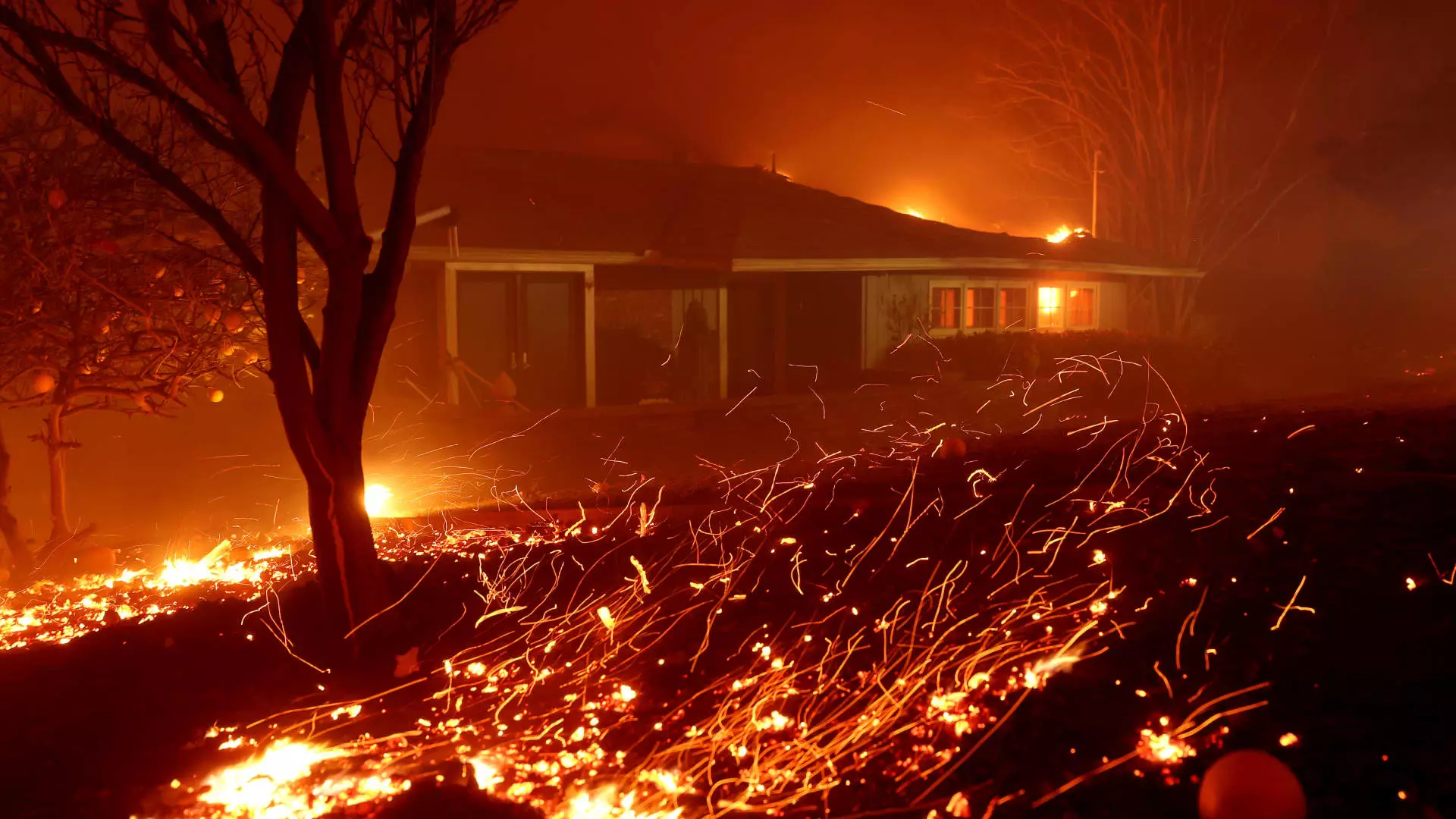The recent wildfires in Los Angeles have forced an urgent reevaluation of the connection between climate change and the housing market. Although the full financial repercussions of these fires are yet to be determined, it is evident that the ramifications will ripple across the real estate landscape, driving up insurance costs for homeowners and investors alike. Insurance companies will likely respond by raising premiums, creating a shift not just in local housing markets but in overall real estate across the United States.
A troubling insight into the future of U.S. homes comes from a study by First Street, which indicates that by 2055, as many as 84% of homes across the country could see a decline in their value. This decline could aggregate financial losses worth approximately $1.47 trillion. As Jeremy Porter from First Street points out, climate change has transitioned from a speculative notion to a quantifiable menace that is fundamentally altering how the real estate industry operates.
The analysis estimates an average national increase in insurance costs of around 25% over the next three decades. This projection is derived from two primary factors: 14% reflects the current underpricing of climate risk, while 11% arises from the escalating threats posed by climate change as time goes on. Although this average translates to a minor decline of roughly 3% in property value, certain geographic locales in Texas, Florida, and Louisiana could experience severe devaluations, potentially losing half of their current market prices.
Dave Burt, the founder of DeltaTerra Capital, is actively investigating these climate risks. His organization assists institutional investors in assessing and managing the financial implications of these climate threats. Burt estimates that within five years, at least 20% of U.S. residences may witness a decline in real estate values due to climate phenomena. He emphasizes that the pricing practices of insurance companies have historically failed to account for the inevitable consequences of extreme weather events, a trend that is shifting rapidly.
Burt likens the current situation to the prelude to the 2008 financial crisis, where many ignored mounting risks related to subprime mortgages. Now, as climate change reshapes risk assessments in the insurance sector, property values are expected to respond accordingly. As the cost of homeownership escalates, the value of these properties is projected to decline significantly. Some forecasts suggest that specific housing markets could see plunges of up to 30% within a five-year period, reminiscent of the housing downturn experienced during the Great Recession.
Concerns are echoed in political spheres, with figures like Senator Sheldon Whitehouse warning that the insurance industry could catalyze a major economic collapse. The prevailing fear is that skyrocketing costs tied to climate change will render properties unsellable and unfinanceable, stifling the mortgage market and real estate transactions nationwide.
The urgency of the situation can hardly be overstated. Experts have been vocal about the rapidly worsening predictions related to climate risk and its impact on the real estate market. According to Ben Keys, a professor at the Wharton School of the University of Pennsylvania, the pace at which climate-related threats have escalated demands that assets recalibrate to achieve market equilibrium.
The correlation between climate change and rising foreclosure rates further underscores the potential detrimental effects on the housing market. Historical data reveals that following major disasters like Hurricane Sandy, foreclosure rates in the region surged. The correlation of environmental catastrophes with rising foreclosures emphasizes the precarious future awaiting vulnerable neighborhoods.
Mortgage giants like Fannie Mae are beginning to acknowledge the convoluted dynamics of climate risk, although it remains to be seen how effectively they will integrate these insights into their underwriting practices. As Fannie Mae and others grapple with the complexities of climate change, decisions made at the corporate level have far-reaching implications for the mortgage market and homeowners.
In light of the pressing risks, some investors are acting preemptively. DeltaTerra’s Burt discusses developing hedging strategies that alleviate exposure to high-risk securities. This proactive approach provides a buffer against the unpredictable nature of climate-related economic shifts.
The rising costs associated with climate-related disasters, including heightened insurance premiums and potential tax increases for community resilience measures, paint a bleak picture for homeowners. Yet governmental actions suggest a disinterest in addressing these imminent challenges. The decision by the Trump administration to halt the Federal Flood Risk Management Standard exemplifies the pitfalls of inadequate policy responses to climate risks.
As the realities of climate change become increasingly undeniable, it is imperative that stakeholders from governmental entities to individual homeowners prioritize sustainable practices and robust risk management strategies. Without immediate intervention and strategic planning, both property values and the financial stability of countless families remain at significant risk.

